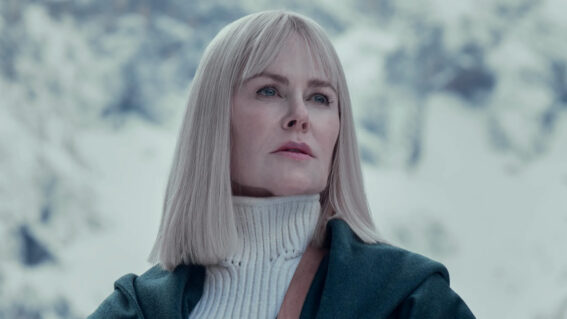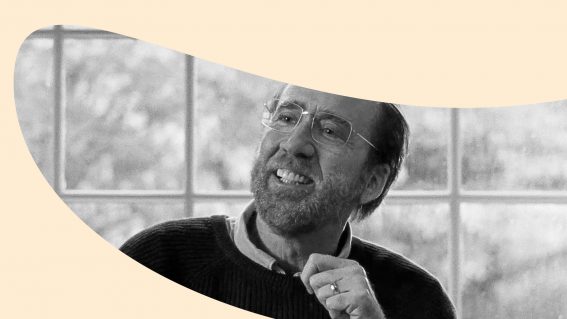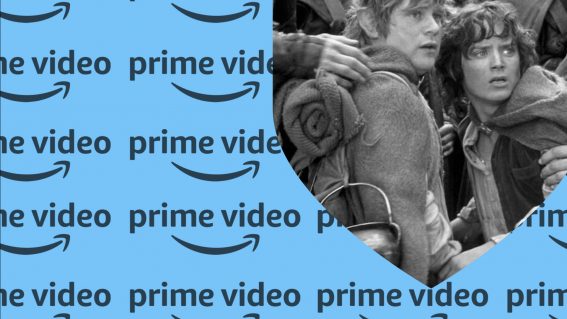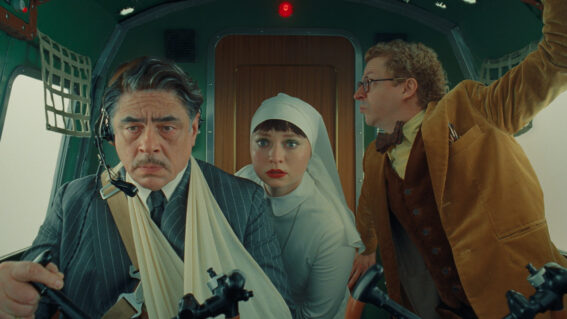CLASH OF THE REMAKES!


"Clash Of The Titans" (1981/2010)
I have a horrible obsession with watching remakes, no matter how terrible they may be. It’s a personal vice and one that I cannot suppress no matter how hard I try. I’ve been wanting to do a write-up for a while now about cinema’s obsession with remakes and reboots; not an opinion piece or a historical look, but just a personal comparison of different versions of films given that I’ve seen so many of them.
This week I got the chance to see the remake of the 80’s cult classic Clash Of The Titans and figured now was as good a time as any to have the ultimate showdown between all the versions of all the remakes and reboots I’ve seen to date. This one’s light on the commentary, but heavy on the imagery. Hope you enjoy the trip!
WARNING: If you hate remakes, this article may cause nausea or long periods of fridge horror.
A couple of things before I being:
1) This is not a comprehensive list. This probably doesn’t even represent 10% of all English-language remakes or reboots ever produced. This is a tiny fraction, so don’t expect me to get them all in here. I’m purely listing the films I’ve seen.
2) For the most part I will not be reviewing made-for-television remakes (which were popular in the 70’s and late 90’s) nor will I be looking at concept-reboots that can’t be compared to an original film (e.g. JJ Abrams Star Trek is not a remake of any particular Star Trek movie. It’s a reboot of the original TV show as a feature film). There may be a few exceptions here or there, but mostly I’ll be sticking to feature films.
So with that aside, let’s wade into the murky pools of creative recycling. Here we go:
Clash of the Titans (1981) vs Clash of the Titans (2010) – much excitement surrounded the imminent remake of the 80’s Greek mythology cult classic, but it turned out that the director of the Transporter franchise and the middle-of-the-road Hulk sequel had replaced much of the original film’s heart with mindless action that was chopped at the ankles by routine, uninspiring characters and performances. Sure the original has that annoying mechanical owl, but more story and character-focus plus some of stop-motion maestro Ray Harryhausen’s finest work still means the original trumps the remake by a country mile. It’s better to be flawed and memorable than slick and forgettable.
La Totale! (1991) vs True Lies (1994) – as much as I love a good, dry, subtle French farce, there is something about the dynamite mix of James Cameron and still-in-his-prime Arnold Schwarzenegger that takes the farce of the original and cranks it up an enjoyable eleven. Cameron brings it all: dead-pan, self-deprecating, comedy intersecting with huge, Wile E. Coyote-esque gags, phenomenal visual effects, memorable performances by almost all the film’s bit players, incredible stunts and a terrific finale involving a harrier jet tearing up a skyscraper. Sorry Frenchies, your original had the bones of a terrific idea and script, but the remake outstrips you for execution and sheer firepower.
La Cage aux Folles (1978) vs The Birdcage (1996) – it’s a clash of cultural context at its finest: subtle, dry, gradually unwinding French farce vs broad, over-the-top, off-the-wall, American comedy. To say that personal taste comes into question is an understatement, though there is star-power leaning on the remake in the form of scene-stealing Robin Williams (before everyone got sick of him) and Nathan Lane (before he vanished into obscurity). The original certainly has dated dramatically in time and cultural reference, but the elegance and wit of the script (even subtitled) dances off the screen and its main players while the remake pushes the screenplay aside for the antics of its two adlibbing comic stars. I think this one a case of which version has less issues for a modern audience and for me, I’d take off-beat 70’s French cinema over the broad antics of Hollywood’s funniest any day of the week. I pick the French original, but the remake is more likely to please the broader audience.
The Ten Commandments (1923) vs The Ten Commandments (1956) – between the 1930’s till the 1950’s, Hollywood spent a great deal of time and money remaking many of its classic silent epics. In 1956, epic-director Cecile B. Demille remade his mega-success The Ten Commandments, but in sound, color and widescreen. How they stack up is a tough call, the silent film is quite a spectacle given that many of the gigantic setpieces were done ‘for real’ rather than the use of visual effects like in the remake, but the remake does have its spectacular and charismatic cast and visual effects where it mattered (like the Red Sea parting). This one’s a tough call, but I’m likely to give this one to the Charleton Heston/Yule Brunner starring remake, but would mark the original silent version as a ‘must watch’ for film buffs.
The Wolf Man (1941) vs The Wolfman (2010) – Both versions of this film are their time period’s star-studded, over-the-top, melodramatic, big, dumb, schlocky, horror fun. While the theatrical version of the remake is pretty piss-poor, the 14-minute longer directors cut brings it up to par with the original in most ways. You could argue that anybody who doesn’t ‘get’ the charm of old black and white horror films may find a lot to enjoy about the jump-scare riddled 2010 version by director Joe Johnston, but comparing apples with apples I think the original George Waggner film is superior thanks to its highly charismatic cast of Lon Chaney Jr, Evelyn Ankers and Claude Raines and Curt Siodmak’s Greek tragedy inspired script, plus all that spooky fog and lantern-action. Original wins by sheer class value.
Planet of the Apes (1968) vs Planet of the Apes (2001) – Some people remember Tim Burton’s remake as the first to illicit the, now very very tired, reaction of ‘why bother?’ Why bother indeed, as Burton’s film became more of an action-movie-meets-comical-farce than a satirical allegory of human kind that the original so deftly pulled off. Burton’s film features some phenomenal ape makeups (pulled off by maestro Rick Baker) and a strangely attractive female ape character played by H.B.C, but the film’s ponderous battle sequences, goofy sets (goofier than the original believe it or not) and nonsensical, what-the-fuck ending proved to be movie’s undoing. There was room to go back to the original French novel and mine it for more substantial material, but Burton sadly resigned himself to try an unseat a classic. Original wins, no contest whatsoever.
[REC] (2007) vs Quarantine (2008) – the announcement of an English-language remake of the Spanish, found-footage, zombie, horror rollercoaster film [REC] certainly illicited a lot of negative reaction from the public who accused Hollywood producers of watering down the globe’s cultural intelligence quotient. The result – Quarantine – is an almost infuriating shot-for-shot remake of the original film, but with slightly beefed up production values and technical precision. However having a better looking and sounding movie is precisely missing the point of a found-footage film and the result is a hackneyed, cheesy, unconvincing movie that’s further marred by too much Acting (with a capital A) rather than the free-flowing improv style of the original. [REC] (man that’s hard to type) all the way and the sequel to the original isn’t half-bad either.
Scarface (1932) vs Scarface (1983) – back before Brian De Palma was making some of the worst movies in recent history, he was making some of the best movies in recent history. His remake of Scarface was, arguably, the pinnacle of his powers as a filmmaker and is considered a modern classic, but how does it hold up to the original classic? There’s a lot to like the original film for: it was made just before the sanitary Hayes Code era and gives a real gritty impression of what life was like in that period when gangsters ran the big cities, it’s got some great mise-en-scene, glorious performances, a creepy incest romance, hell it even has pre-Frankenstein Boris Karloff in a zoot-suit with a tommy gun. It’s arguably a masterpiece of its time, but I think the original still comes off as a historical curiosity compared to the catharsis of the de Palma’s take on the story. While it’s a very close call, the remake here wins by a hair off Pacino’s head.
Le Diner De Cons (1998) vs Dinner For Schmucks (2010) – Roll em up again, it’s French farce vs broad Yankee comedy! Geez does Hollywood get all its comedies from the French? This one is no-contest, Dinner For Schmucks is a pretty rank film that barely registers in Steve Carrell or Paul Rudd. Helmed by Austin Powers director Jay Roach (who, for some reason, also did the marginally better Mystery, Alaska) this remake was D.O.A. and had nothing better to offer than leaning on its two comedy stars (who are both lost without a good script and director to make the most of their talents). The French original, while no blockbuster, was an award-winner and a box-office hit across Europe. Original wins!
Bedazzled (1967) vs Bedazzled (2000) – Okay, neither of these films are particularly masterpieces by any stretch of the imagination. Initially I thought this was going to just be a matter of deciding who you prefer – Liz Hurley or Raquel Welch. Turns out nothing could be further from the truth, the original starring Dudley Moore dates fairly badly and relies too much on what Moore does best (look awkward and perplexed) and Welch does best (look good in a bikini). With the remake, the producers turn things up a notch by actually allowing Brendan Fraser to do what he does best: broad, cartoonish, comedy (if you don’t believe me, you should check out George Of The Jungle!). Balancing eye-candy Fraser against Hurley’s English vixen version of the Lucifer and some semi-creative (for Hollywood comedy) sketches and gags, the remake proves to be far more worth your time…if at all. Remake for sure.
The Thing From Another World (1951) vs The Thing (1982) – another clear winner here. While the original proves to be a moody piece of 50’s sci-fi B-picture material, the film is undermined by too readily turning the original short story into a formulaic Hollywood structure that plays cheap even in that period. John Carpenter’s remake, easily the best thing he’s ever done in his career, realizes horror in the most literal sense with a stunning balance between claustrophobic tension, paranoia and stomach-churning alien gore effects. Like some terrific nightmare, The Thing has overtaken its original to be crowned king in modern pop culture. Look out for the prequel out this year *shudder*.
The House On Haunted Hill (1959) vs The House On Haunted Hill (1999) – the originator of this story certainly comes with a lot to recommend itself: Vincent Price as our dutiful and eccentric host, the titular “house” being the Frank Lloyd Wright Ennis House in Los Feliz, California, and its director William Castle who was the master of cheesy-gimmick films and outside-the-box marketing. That said, though, the movie really has dated and most of these elements (particularly the scare gags) don’t raise the interest level bar a mild historical curiosity. Contrast with the somewhat vicious, music-video-like and demented remake that certainly doesn’t aim for high-calibre cinema, but does take a full-forced shot at fooling the audience, turning their stomach with grisly deaths and harrowing ghostly encounters, it’s a little bit hard to pick a clear winner. While critics seem to prefer the original, I think I definitely have my money on the remake which, despite being a cheese-fest itself, really strives to put the unsettling and hard-to-sit-through tension back into a ‘haunted house’ movie. Exploitative and nasty and with a fun cast who really enjoy themselves, the remake has my vote.
The Wicker Man (1973) vs The Wicker Man (2006) – Oh Nicholas Cage, what I would give to not have your career. The Wicker Man is a strange film that almost defies genre classification. You could argue that it’s a fantasy or possibly a thriller or a who-dunnit. There’s ample evidence to suggest its a straight-laced drama or possibly even a piece of erotica (though the RAMPANT female nudity and sex is actually, brilliantly, part of the storyline). Despite this, in countless DVD stores and books, it’s labelled as a ‘horror’ movie which I disagree with. Sure it has something very horrible happen in the end of the film, but 5 minutes of horror does not a scary movie make. Unfortunately for the remake, the producers seemed to think that this masterpiece from the British Isles actually WAS a horror film and tried to veer their film into that very direction. With Nicholas Cage in tow. I’m sure you can imagine what happened. The original Wicker Man is one of the most quintessentially English and profoundly fascinating films you’ll ever watch (even besides the rude bits) and will really, really turn your perceptions upside down. The original is made of pure win.
The Blob (1958) vs The Blob (1988) – holy moley, a 50’s cult film vs an 80’s cult film. It’s almost too close to call! The original 50’s sci-fi horror (or possibly black comedy) features the incredible Steve McQueen, a hip-to-the-hip rock’n’roll soundtrack, some great visual effects and a real tongue-in-cheek zest for originality and turning the screws of the audience. The 80’s version certainly trumps the original with its SPECTACULAR (and sometimes disgusting) effects, self-awareness of horror genre tropes, messing with the audience’s expectations, features a very young hot Shawnee Smith (who rose again to fame in the Saw films) and is a masterclass on the basic fundamentals of scriptwriting (penned by a certain Mr Frank Darabont). Ooooohh….so close….umm…ahhh…alright I’m gonna go with the remake.Why? Well Steve McQueen is bad-ass, of course, but the 80’s version really tickles the filmmaker in me in how HARD the film tries to turn the tables on the audience with its false protagonists, fake-outs, cute plot twists and the fact that its not afraid to condemn a child character to a horrible blobby death and have its villain be an OLD BLACK GUY. You gotta respect that! Remake trumps the original, sorry original Blob fans.
Cape Fear (1962) vs Cape Fear (1991) – although a popular selection for high school film and media studies teachers, I really don’t get the love for Martin Scorcese’s remake of Cape Fear. Sure it’s got De Niro being…well…kinda De Niro-ish I guess and he’s up against Nick Nolte of all people and there’s that awful, over-the-top, unceasing music that makes you want to claw your ears out. Compared to the original which has the titanic clash between the greatest lawyer in movie history – Gregory Peck – and wonderful Robert Mitchum as the ex-con who terrorizes his family, I really just don’t see the appeal. Scorcese’s version is hammy, silly, simplistic (even for a late 80’s-early 90’s thriller) and unsophisticated for the time the film was made. Original all the way.
Willy Wonka & The Chocolate Factory (1971) vs Charlie & The Chocolate Factory (2005) – Here’s how this one goes down for me. I love the original adaptation starring Gene Wilder. It’s not the slickest film or even the most convincing and it’s delightfully offbeat feel is, simultaneously, bizarre, unusual and a wee bit disturbing. It’s like the most lovable cult acid-trip film you can come across. But it’s not Roald Dahl. Dahl, who penned the script for the original, disowned the film and labeled it a ‘disaster’ and I can see his point. Tim Burton’s remake is slick, created for the far more cynical youth of today and possibly a bit more mean-spirited…but it’s the book through and through. I think if Dahl was around today, he’d be proud of Burton’s version and I have to agree with Dahl’s point even if I still as an adult sometimes hum Wilder’s “Pure Imagination” number. Sorry, as much as I’d love to disagree,, but the remake is the better film and the more faithful adaptation even if the original has wonderful nostalgia value and the winking snarl of Dahl’s witty screenplay.
Ju-On: The Grudge (2002) vs The Grudge (2004) – you gotta hand it to director Takashi Shimizu, he doesn’t quit until he perfects his work. Shimizu has been remaking Ju-On since 1998, starting with a couple of direct-to-video (a huge industry in Japan) home-produced releases before graduating to Ju-On: The Grudge, the success of which took the horror world by storm and was next on Hollywood’s remake sights after their remake of Ringu. The problem with Shimizu’s films (if you can call them problems) is that they’re really an anthology of death scenarios rather than an actual story. Ju-On attempts to weave a narrative linking the people who die, but at the end of the day it remains a series of loosely interconnected sketches ending with a horrific death caused by Kayako, the vengeful croaking ghost. With the Sam Raimi-produced remake, Shimizu (with the help of a team of American screenwriters) reproduces some of his best death gags with an investigative story; one that holds together surprisingly well all things considering. The movie also takes advantage of the culture-shock of Japan for audiences by using non-Japanese leads, but setting the film in Tokyo. A lot of purists dislike the remake, but I think it is clearly head and shoulders above the wishy-washy original and the invention of an actual storyline makes the experience a worthwhile watch. Remake wins for me.
Wings Of Desire (1987) vs City Of Angels (1998) – gah, Nicholas Cage again! Damn, this guy is the kiss of death for remakes. City Of Angels is your usual, run of the mill, Nic Cage meets Meg Ryan, saccharine, ludicrous romance film with slight fantasy elements and a highly predictable ending that makes it, arguably, the girly flick equivalent to a brainless action film from the 1980’s. Which is a pity because the original German film – Wings of Desire – is considered by many critics and film buffs to be one the greatest and most artistically robust movies ever produced in the history of cinema. In the original, the main character isn’t a humdrum Biblical ‘angel’ persay as more part of a race of immortals who document and preserve, in their memories, the history of reality. The film is famous for its stunning and creative cinematography, powerful performances and even features cameos by Peter Falk and Nick FREAKING Cave & The FREAKING Bad Seeds! I’m sorry Nicholas Cage, but your remake is pure epic fail of the most catastrophic proportions.
Ben Hur (1925) vs Ben Hur (1959) – the remake of Ben Hur is arguably the best evidence around today that remakes don’t have to suck. Currently holding the records for most Academy Award wins (tied with Titanic), the film is ‘epic’ defined and was the first all-sound/all-color version of the classic 1925 silent film. I’ve gotta admit though that, despite the chariot race (recreated shot for shot from the original), the beautiful music score and Charleton Heston’s fire-and-brimstone routine (hey, isn’t this the third time he’s turned up in this list?), I’ve got no real love for the remake. The film’s lighting and art direction is grating and the movie really drags in some moments. The silent original, on the other hand, carries pretty much all the strengths of the remake (minus Heston and music) and features spectacular production values and better pacing to boot. It’s tough comparing silent films to talkies, but for my mark I think the original has stuff going for it that the remake doesn’t, despite how good the remake is. Both are great, but my vote is with the original silent version.
Infernal Affairs (2002) vs The Departed (2006) – I get into a lot of fights with this one. The Departed finally won Martin Scorcese his long overdue Oscar and is on a lot of people’s top crime films, but then there’s the other side (which I belong to) who decry how much Scorcese’s film overshadows the brilliance of the original that almost redefined Hong Kong’s film industry. Infernal Affairs is everything that the remake is, but more with its refreshing focus on the hard-edged crime wars between Chinese syndicates and the savvy and dedicated police force who hunt them. It stars two of China’s biggest stars – Andy Lau and Tony Leung – and immerses you within the high-tech, crazy world that is 21st Century Hong Kong. No amount of Jack Nicholson’s grinning mug can compete with that for me, it’s the original all the way. I appreciate Scorcese got his consolation Oscar, but he needs to stay away from remaking perfectly brilliant films that don’t need to be remoulded.
IT! The Terror From Beyond Space (1958) vs Alien (1979) – I bet you hadn’t heard of this one until now heheheh. Although not technically a ‘remake’ persay, Alien’s screenwriters Dan O’Bannon and Ronald Schusett admitted to being inspired by a lot of science-fiction films…but neither of them mention THIS film and for very good reason. This low-budget B-movie from the late 50’s has a plot structure so similar to Alien that you’d swear the Ridley Scott horror classic WAS a remake of it. Right down the hypersleep and crew-breakfast sequences, the distress call from an alien planet, the creature hiding in the ship’s hold and picking off the crew one by one and finally getting destroyed by opening the ship’s airlocks, It! The Terror From Beyond Space is clearly the model the writers used to shape the story of their film. Of course there’s no competition here. Alien is a sci-fi and horror masterpiece and a powerful and beautiful piece of filmmaking on almost every level imaginable. IT…is just another bad movie from the 50’s. But it’s certainly a curious journey to see how the story of one film can be fully realized in another. History goes to show that the remake is the clear winner at the end of the day.
Man oh man, I’m looking what I’ve put up so far and realized that I’m not even halfway through my list and I’ve not even covered the films that have more than one remake. I think this going to have to be done in more than one part…possibly a couple if I’m going to make it through this list. Chances are if your favourite remake hasn’t turned up yet then it will do in the next installment.
What are your thoughts these remakes and how they fair compared to their originals?
Thanks for reading!


































